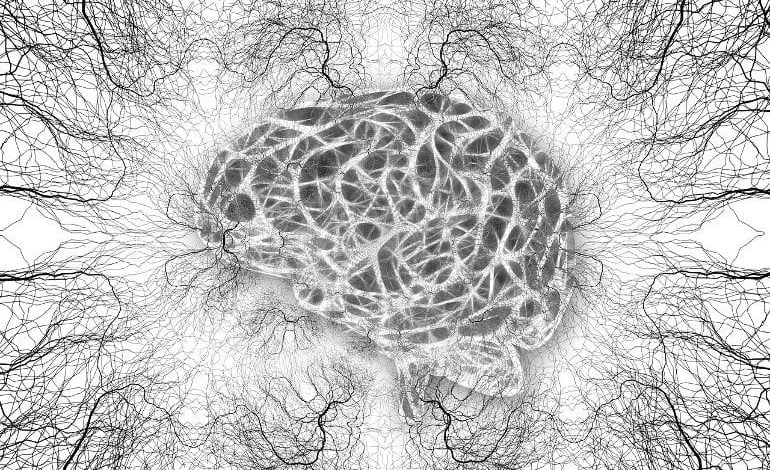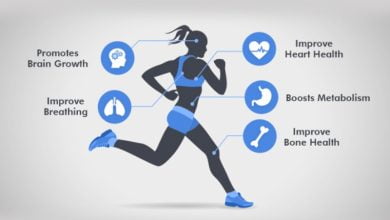The Ultimate Guide to Understanding and Optimizing Your Sleep: Regulation Techniques and Tips

Introduction:
Inhibition of Neural Excitability: Balancing Brain Function
Inhibition of neural excitability is a fundamental process in the central nervous system (CNS) that plays a crucial role in maintaining the delicate balance between excitation and inhibition. Through a complex interplay of neurotransmitters, receptors, and neural circuits, inhibition serves to regulate the activity of neurons, preventing excessive firing and ensuring the proper functioning of brain networks. Understanding the mechanisms underlying inhibition of neural excitability is essential for unraveling the complexities of brain function and the pathophysiology of various neurological and psychiatric disorders.
Mechanisms of Inhibition:
Inhibition of neural excitability can occur through several mechanisms, each involving distinct neurotransmitters, receptors, and signaling pathways.
Gamma-Aminobutyric Acid (GABA) Transmission:
Gamma-aminobutyric acid (GABA) is the primary inhibitory neurotransmitter in the CNS and plays a central role in mediating synaptic inhibition. GABAergic transmission occurs through the activation of GABA receptors, which are classified into two main types: GABA<sub>A</sub> receptors and GABA<sub>B</sub> receptors. Activation of GABA<sub>A</sub> receptors leads to the opening of chloride ion channels, resulting in membrane hyperpolarization and inhibition of neuronal activity. GABA<sub>B</sub> receptors, on the other hand, modulate neurotransmitter release and neuronal excitability via second messenger signaling pathways.
Glycine Transmission:
Glycine is another inhibitory neurotransmitter that mediates synaptic inhibition in the CNS, particularly in the spinal cord and brainstem. Glycine receptors are ligand-gated chloride channels that hyperpolarize the postsynaptic membrane in response to glycine binding, leading to inhibition of neuronal activity.
Neuromodulatory Systems:
In addition to classical neurotransmitters, several neuromodulatory systems play a role in regulating neural excitability through inhibition. For example, the serotonergic system, the noradrenergic system, and the dopaminergic system modulate neuronal activity and synaptic transmission through the release of serotonin, norepinephrine, and dopamine, respectively. These neuromodulators exert both inhibitory and excitatory effects depending on the receptor subtype and brain region involved.
Functions of Inhibition:
Inhibition of neural excitability serves several critical functions in the CNS, including:
Prevention of Hyperexcitability:
One of the primary functions of inhibition is to prevent hyperexcitability and maintain the balance between excitation and inhibition in the brain. By limiting the firing of neurons and dampening excessive synaptic activity, inhibition helps prevent seizures and other pathological states associated with neuronal hyperexcitability.
Network Stabilization:
Inhibition plays a crucial role in stabilizing neural networks and ensuring their proper functioning. By regulating the timing and synchronization of neuronal activity, inhibition helps coordinate information processing and integration across different brain regions, allowing for the emergence of coherent behaviors and cognitive functions.
Selective Information Processing:
Inhibition contributes to the selective processing of sensory information and the filtering out of irrelevant stimuli. By inhibiting the activity of certain neurons while enhancing the activity of others, inhibition helps sharpen sensory discrimination and enhance signal-to-noise ratio, facilitating efficient perception and cognition.
Control of Motor Output:
Inhibition is essential for the precise control of motor output and coordination of movement. Inhibitory interneurons in the spinal cord and brainstem modulate the activity of motor neurons, ensuring smooth and coordinated muscle contractions while preventing unwanted movements and oscillations.
Implications in Neurological and Psychiatric Disorders:
Dysfunction of inhibition of neural excitability is implicated in a wide range of neurological and psychiatric disorders. Imbalances in inhibitory neurotransmission or alterations in inhibitory circuits can lead to hyperexcitability, network instability, and cognitive deficits.
Epilepsy:
Epilepsy is characterized by recurrent seizures resulting from abnormal neuronal hyperexcitability and synchronization. Dysfunction of GABAergic transmission or impaired inhibition in specific brain regions can contribute to the generation and propagation of epileptic seizures.
Anxiety Disorders:
Anxiety disorders such as generalized anxiety disorder (GAD) and panic disorder are associated with dysregulated inhibition of neural excitability. Reduced GABAergic transmission or alterations in GABA receptor function may contribute to heightened arousal and exaggerated stress responses observed in these conditions.
Schizophrenia:
Schizophrenia is a complex psychiatric disorder characterized by disturbances in perception, cognition, and affect. Dysfunction of inhibitory circuits and alterations in GABAergic transmission have been implicated in the pathophysiology of schizophrenia, contributing to cognitive deficits and psychotic symptoms.
Movement Disorders:
Movement disorders such as Parkinson’s disease, Huntington’s disease, and dystonia are characterized by abnormal motor function and coordination. Dysfunction of inhibitory circuits in the basal ganglia and cerebellum can lead to dysregulated motor output and movement abnormalities observed in these disorders.
Therapeutic Approaches:
Pharmacological interventions targeting inhibition of neural excitability represent a cornerstone of treatment for various neurological and psychiatric disorders. Drugs that enhance inhibitory neurotransmission, such as benzodiazepines, barbiturates, and GABA analogs, are used to alleviate symptoms of epilepsy, anxiety, and sleep disorders. Conversely, drugs that modulate neuromodulatory systems or target specific receptor subtypes may be employed to restore the balance between excitation and inhibition in the brain.
In conclusion
Inhibition of neural excitability is a fundamental process in the CNS that plays a critical role in maintaining brain function and homeostasis. By regulating neuronal activity, stabilizing neural networks, and controlling information processing, inhibition ensures the proper functioning of the brain and underlies various cognitive, emotional, and motor functions. Dysregulation of inhibitory mechanisms is implicated in a wide range of neurological and psychiatric disorders, highlighting the importance of understanding the mechanisms underlying inhibition for developing effective therapeutic interventions.
Navigating the Depths of Sleep Regulation: Understanding the Science and Impact
Introduction:
Sleep, often considered as the “third pillar of health” alongside diet and exercise, remains one of the most fundamental yet enigmatic aspects of human existence. It plays a pivotal role in maintaining physical, cognitive, and emotional well-being. However, the regulation of sleep is a complex interplay of various physiological, neurological, and environmental factors. In this comprehensive exploration, we delve into the mechanisms governing sleep regulation, its significance, and the implications of its disruption on human health and functioning.
Understanding Sleep Regulation:
Circadian Rhythms:
The circadian rhythm, often referred to as the body’s internal clock, is a biological process that regulates the sleep-wake cycle over a 24-hour period. Controlled by the suprachiasmatic nucleus (SCN) in the brain’s hypothalamus, circadian rhythms synchronize with environmental cues, primarily light-dark cycles, to dictate when we feel alert and when we feel sleepy.
Homeostatic Mechanisms:
Sleep-wake homeostasis maintains a balance between sleep and wakefulness based on the body’s need for rest. Adenosine, a neurotransmitter, accumulates in the brain during wakefulness, promoting sleep pressure. As adenosine levels rise, the urge to sleep increases. Sleep dissipates adenosine, resetting the cycle.
Neurotransmitters and Hormones:
Various neurotransmitters and hormones modulate sleep regulation. Serotonin, dopamine, and norepinephrine are involved in wakefulness, while gamma-aminobutyric acid (GABA) and melatonin promote sleep. Hormones like cortisol, growth hormone, and prolactin also influence sleep patterns.
Brain Structures:
Several brain regions, including the thalamus, basal forebrain, and brainstem nuclei, regulate sleep-wake transitions and stages of sleep. The thalamus relays sensory information, the basal forebrain promotes sleep onset, and brainstem nuclei control arousal and muscle tone during sleep.
Sleep Architecture:
Sleep consists of distinct stages, including non-rapid eye movement (NREM) and rapid eye movement (REM) sleep. Each stage serves unique physiological functions. NREM sleep facilitates bodily restoration, while REM sleep is crucial for cognitive processes such as memory consolidation and emotional regulation.
Impact of Sleep Regulation on Health and Functioning:
Cognitive Function:
Adequate sleep is vital for cognitive processes such as attention, memory, learning, and problem-solving. Sleep deprivation impairs cognitive performance, leading to deficits in concentration, decision-making, and creativity.
Emotional Regulation:
Sleep plays a crucial role in emotional regulation and resilience. Insufficient sleep disrupts emotional processing, increasing susceptibility to mood disorders like depression and anxiety. It can also exacerbate existing psychiatric conditions.
Physical Health:
Sleep regulates various physiological functions, including metabolism, immune function, and cardiovascular health. Chronic sleep deprivation is associated with obesity, diabetes, hypertension, and increased risk of heart disease and stroke.
Immune Function:
Sleep is essential for immune function, promoting the production of cytokines and immune cells that defend against infections. Inadequate sleep compromises immune response, making individuals more susceptible to illness.
Hormonal Balance:
Sleep influences hormonal balance, regulating appetite, stress response, and reproductive function. Disrupted sleep patterns disrupt hormone secretion, contributing to metabolic disturbances and reproductive disorders.
Regulation of Sleep: Challenges and Solutions:
Environmental Factors:
Modern lifestyles, characterized by artificial light exposure, irregular work schedules, and excessive screen time, disrupt natural sleep-wake cycles. Creating a sleep-friendly environment, practicing good sleep hygiene, and limiting exposure to stimulating activities before bedtime can help regulate sleep.
Sleep Disorders:
Sleep disorders like insomnia, sleep apnea, restless legs syndrome, and narcolepsy disrupt sleep architecture and quality. Diagnosis and treatment of underlying sleep disorders are essential for restoring healthy sleep patterns.
Stress Management:
Chronic stress impairs sleep regulation by activating the body’s stress response system. Stress management techniques such as relaxation exercises, mindfulness meditation, and cognitive-behavioral therapy can alleviate sleep disturbances.
Lifestyle Modifications:
Healthy lifestyle habits, including regular exercise, balanced nutrition, and limiting caffeine and alcohol consumption, promote better sleep quality and duration. Establishing a consistent sleep schedule reinforces circadian rhythms and enhances sleep regulation.
Conclusion:
The regulation of sleep is a multifaceted process governed by intricate physiological mechanisms and influenced by various environmental and behavioral factors. Understanding the science of sleep regulation is essential for optimizing health, well-being, and cognitive performance. By prioritizing sleep hygiene, addressing sleep disorders, and adopting healthy lifestyle habits, individuals can cultivate restorative sleep patterns conducive to overall health and functioning.Sleep is an essential aspect of our lives that often goes overlooked. Many of us underestimate the importance of getting enough quality sleep and the impact it has on our overall health and well-being. In this ultimate guide, I will delve into the intricacies of sleep, explore the factors that affect it, and provide you with practical tips and techniques to optimize your sleep and wake up feeling refreshed and rejuvenated.
The Importance of Sleep for Overall Health and Well-being
Sleep is not just a period of rest; it is a crucial time for our bodies to repair, regenerate, and recharge. It plays a fundamental role in maintaining our physical and mental health. When we sleep, our bodies go through different stages, including deep sleep and REM sleep, which are essential for memory consolidation, learning, and emotional regulation.Lack of sleep can have a profound impact on our overall health. It weakens our immune system, making us more susceptible to illnesses. It impairs our cognitive functions, affecting our ability to concentrate, make decisions, and solve problems. Sleep deprivation has also been linked to weight gain, diabetes, cardiovascular diseases, and mental health disorders such as depression and anxiety.
Understanding the Sleep-Wake Cycle and Circadian Rhythm
To understand sleep and optimize it, we must first grasp the concept of the sleep-wake cycle and the circadian rhythm. The sleep-wake cycle is a 24-hour cycle that regulates our sleep and wakefulness. It is influenced by our internal biological clock, known as the circadian rhythm, which is primarily controlled by the hypothalamus in our brain.Our circadian rhythm responds to the natural light and darkness cues in our environment, signaling our bodies when it’s time to sleep or wake up. Disruptions to this rhythm, such as irregular sleep schedules, exposure to artificial light at night, or shift work, can lead to sleep disturbances and impact our overall well-being.
Common Sleep Disorders and Their Impact on Health
Sleep disorders are prevalent and can significantly affect our quality of life. Some of the most common sleep disorders include insomnia, sleep apnea, restless leg syndrome, and narcolepsy. Insomnia is characterized by difficulty falling asleep or staying asleep, resulting in daytime fatigue and impaired functioning.Sleep apnea is a disorder in which breathing repeatedly stops and starts during sleep, leading to poor sleep quality and excessive daytime sleepiness. Restless leg syndrome causes uncomfortable sensations in the legs, leading to an irresistible urge to move them, often disrupting sleep. Narcolepsy is a neurological disorder that causes excessive daytime sleepiness and sudden episodes of falling asleep.
Tips for Creating a Sleep-Friendly Environment
Creating a sleep-friendly environment is crucial for optimizing your sleep quality. Start by making your bedroom a peaceful and relaxing space. Keep it cool, dark, and quiet, and invest in a comfortable mattress and pillows that support your body’s natural alignment. Remove any distractions, such as electronics or clutter, that can disrupt your sleep.Establish a consistent sleep schedule by going to bed and waking up at the same time every day, even on weekends. This helps regulate your circadian rhythm and promotes a more restful sleep. Avoid stimulating activities, such as exercising or consuming caffeine or alcohol, close to bedtime, as they can interfere with your ability to fall asleep.
Sleep Regulation Techniques: Establishing a Bedtime Routine
Establishing a bedtime routine can signal your body that it’s time to wind down and prepare for sleep. Engage in relaxing activities, such as reading a book, taking a warm bath, or practicing deep breathing or meditation. Avoid using electronic devices, as the blue light emitted by screens can suppress the release of melatonin, a hormone that promotes sleep.Create a comfortable and soothing atmosphere in your bedroom by using calming scents, such as lavender, or playing soft, relaxing music. Practicing relaxation techniques, such as progressive muscle relaxation or guided imagery, can also help calm your mind and prepare you for sleep.
The Role of Nutrition and Exercise in Promoting Healthy Sleep
What we eat and how we move our bodies can have a significant impact on our sleep quality. Avoid consuming large meals close to bedtime, as this can cause discomfort and indigestion, making it difficult to fall asleep. Instead, opt for a light snack that contains sleep-promoting nutrients, such as complex carbohydrates, protein, and tryptophan.Regular exercise can improve sleep quality and duration. Engaging in physical activity during the day helps to reduce stress and anxiety, promotes relaxation, and tires your body, making it easier to fall asleep at night. However, avoid exercising too close to bedtime, as it can increase alertness and make it harder to wind down.
Managing Stress and Anxiety to Improve Sleep Quality
Stress and anxiety can wreak havoc on our sleep. Racing thoughts and worries can keep us awake at night, making it difficult to relax and fall asleep. It’s crucial to find healthy ways to manage stress and anxiety to improve sleep quality.Engage in stress-reducing activities, such as practicing mindfulness or yoga, journaling your thoughts and feelings, or talking to a trusted friend or therapist. Establishing a consistent bedtime routine and creating a peaceful sleep environment can also help alleviate stress and anxiety and promote better sleep.
Sleep Tracking Devices and Apps: How They Can Help Optimize Your Sleep
Sleep tracking devices and apps have gained popularity in recent years, offering insights into our sleep patterns and habits. These devices use sensors to monitor factors like sleep duration, sleep stages, and movement during sleep. They can provide valuable information about your sleep quality and help identify any potential sleep disturbances.By tracking your sleep, you can gain a better understanding of your sleep patterns and make adjustments to optimize your sleep. Some devices also offer features like sleep coaching or guided relaxation exercises to help improve your sleep habits and promote a healthier sleep routine.
Natural Remedies and Supplements for Better Sleep
If you’re looking for natural alternatives to improve your sleep, there are several remedies and supplements that may help. Some popular options include herbal teas, such as chamomile or valerian root, which have calming properties and can promote relaxation before bedtime.Melatonin supplements can also be beneficial for individuals with sleep disorders or jet lag. Melatonin is a hormone that regulates sleep-wake cycles and can help improve sleep quality and reduce the time it takes to fall asleep. However, it’s essential to consult with a healthcare professional before starting any new supplement.
The Impact of Technology on Sleep and How to Minimize Its Effects
In today’s digital age, technology has become an integral part of our lives. However, excessive use of electronic devices, especially before bedtime, can have a detrimental effect on our sleep. The blue light emitted by screens suppresses melatonin production, disrupts our circadian rhythm, and makes it harder to fall asleep.To minimize the impact of technology on sleep, establish a “digital curfew” by avoiding screen time at least one hour before bed. Instead, engage in relaxing activities like reading a book, listening to calming music, or practicing a relaxation technique. Consider using blue light filters or apps that adjust the color temperature of your devices to reduce the exposure to blue light.
Seeking Professional Help for Persistent Sleep Issues
If you’re experiencing persistent sleep issues that are interfering with your daily life, it may be time to seek professional help. Sleep disorders can have a significant impact on your overall health, and a healthcare professional specializing in sleep medicine can provide a proper diagnosis and recommend appropriate treatment options.Treatment for sleep disorders may include lifestyle modifications, cognitive-behavioral therapy, or medication. It’s essential to work closely with a healthcare professional to develop a personalized treatment plan that addresses your specific needs and helps you achieve optimal sleep.
Conclusion: Prioritizing Sleep for a Healthier and Happier Life
In conclusion, understanding and optimizing your sleep is crucial for your overall health and well-being. By prioritizing sleep and implementing the tips and techniques outlined in this guide, you can create a sleep-friendly environment, establish a consistent bedtime routine, manage stress and anxiety, and make lifestyle adjustments that promote healthy sleep.Remember, sleep is not a luxury but a necessity. It is an investment in your physical and mental health. So, make sleep a priority and reap the benefits of rejuvenation, improved cognitive function, and a happier, healthier life.
CTA:
Take charge of your sleep today by implementing the tips and techniques shared in this guide. Prioritize your sleep and experience the transformative power of a good night’s rest. Your body and mind will thank you.




